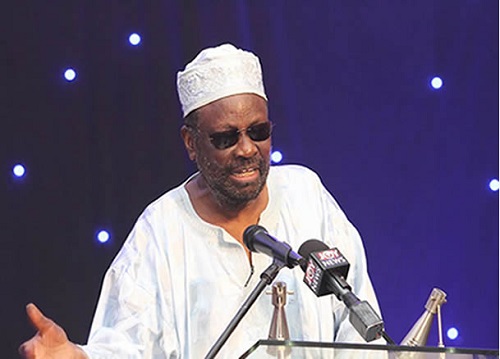I am absolutely fascinated by the annual festival which the Effutu people of the Central Region hold each year in their capital, Winneba, at this time of year. It is in honour of their deity, Penkye Otu, who they believe guided them safely to their current habitat hundreds of years ago.
That the people still believe strongly in the salvation Penkye Otu provided them on their long journey and their attempt to establish a new home in a strange environment, is evident from the zeal with which they congregate together and dance through the streets of Winneba during the festival. Every person who hails from Winneba tries to be there for the festival each year. Indeed, they consider it a blessing to have been preserved to be there again after a whole year had passed.
The traditional displays of the people on the streets of Winneba during the festival, marks the fact that the people, originally, needed to be extremely valiant in spirit because in the past, the live animal captured to be presented to Penkye Otu was
– A LEOPARD!
You have probably heard of this animal, known locally as OSEBO or ETWIE, which also features in many other Ghanaian folktales!
No one with any brains in his skull plays with that animal. So, it is very impressive to watch the inherited lack of fear with which thousands of men, women and even adolescent children, voluntarily don white or red clothing and troop behind their ‘Asafo Companies’ (Tuafo and Dentsifo) and carry out certain rituals before they set off into the deep bush, in search of a live animal to catch and bring home. Okay, it is now a deer (or antelope) instead of a fearsome leopard. But what about snakes and scorpions?
Hidden thorns lying in wait for bare feet and ankles?
No fears: their objective was to capture a live ‘deer’ and present it to Penkye Otu to tell the deity that they have not forgotten the protection what it gave their ancestors, which enabled Winneba to live, thrive and prosper to this day. And they would do that at any cost and prove to Penkye Otu!
They then show their obei- sance with their vigorous dancing and fierce war songs.
If you are able to go to www.Youtube.com on the Internet, and search for ‘Winneba Aboakyer’, I assure you that you will bless the day you bought a good computer or smart phone.
Although some of the footage you will come across was shot by amateurs, you cannot help but admire their enthusiasm as they enable you to join the people you see on the screen enjoying themselves in an atmosphere which can only be created once a year.
To me, the greatest spectacle of all was to see so many men and women, as well as boys and girls, FEARLESSLY enter a wide lagoon that separates the two sectors of the wilderness in which the deer have their habitat. Wading through it may have had a terrifying effect on some people, including those who normally live in the hinter- land.
Yet, these coasters waded through lagoons without the slightest hesitation, and turned the whole experience into a game of ‘you dare me, I dare you!’ Forwards and forwards they moved, till they entered the deep forest. The sound of horns, whistles, gong-gongs and drums, filled the air. Yells (some of them false alarms) were often heard before the deer got caught, to be carried shoulder-high to the ancestral durbar grounds of Winneba.
I still wonder: So, were they not afraid of the lagoon? Suppose parts of it were deeper than was assumed. There were some dug-out canoes on the surface.
Didn’t that indicate that some parts of the lagoon were quite deep? Ho! If such fears entered their minds, they did not show it. It was forward, for- ward all the way.
The thought that occurred to me as I watched it all was this: In almost every town and village in Ghana, there is such a festival. The Asantes have their Akwasidae. .
The Akyems have their Ohum and Odwira.
And so on.
These ancestral festivals are a MEMENTO to the valour and wisdom exhibited by the people’s ancestors that enabled their societies to survive until now. Whitemen’s powerful guns could not wipe them out.
When the men were deserted by courage – as during the Yaa Asantewaa War – the women took over.
They fought in their thousands. And they died in their thousands.
But “if you killed a thousand, a thousand would come to replace them. Yet today, the rivers and water-bodies that sustained their lives are in danger of being destroyed. But unlike the people of old, we have nowhere else to go to! Burkina Faso? Togo? Mali? Niger? Forget it!
As our people say, “If you haven’t gone to someone else’s dwelling place, it would sound attractive to you. But go there and see!” We have nowhere else to go to. But how can we safeguard what we have? Without water, there will be NO people here.
Only graves.
www.cameronduodu.com


